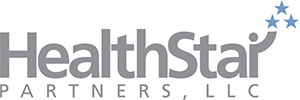By Deborah Hall, CHC, CRMA, CFSA
Deborah J Hall ([email protected]) is the Founder of ARC Advisors, LLC, a national governance, risk, and control practice out of Nashville Tn and West Palm Beach Fl.
As the first line of defense, Operational and C-Suite Leaders are inundated with the constant pull of risk and reward. Especially in today’s intensely regulated environment and dealing with a public health emergency has our resources strained and completely maxed out. The DAY JOB has morphed into remote work, fighting the unseen virus, getting used to employing talented resources that may also be remote or in shortage, the daily fires, emails, flexing regulations, changing regulations, new control deficiencies, whether we should accept CARES ACT funding, and how to stay on budget, and is our management team engaged!
Working through the daily outbreaks and constant pings of your email it’s no wonder the governance compliance and audit risks within your health system are taking a back seat. Today’s Operational Executives need and require agile governance resources (audit, compliance, privacy, risk) that can proactively address those surprises that can be showstoppers or be able to respond in a calm demeanor to complex business issues, while being flexible to alter the days plan at a moment’s notice.
As a matter of reality, our C-Suite leaders need to be able to rely on their governance resources as trusted advisors and reliable partners that will transparently assist in the mission, values and strategic alignment of their health systems while providing timely solutions to complex business problems. Today’s Compliance Executive is called upon to be the champion of a compliant culture, affect change and impact and influence our constituents in a manner that accelerates the ethical behavior while addressing financial, regulatory, and operational challenges.
Compliance Executives must accomplish this valuable partnership with our constituents at all levels by being nimble and including a sense of empathy that encourages communication and relying on factual information that is in context across the health system. Our social influence is something in the past that was underrated but can now be utilized in our tool kits to assist in evangelizing management’s risk response across the system. We are poised to readily assess, identify, prioritize, and promote solutions across the system. We recognize our role is to responsibly provide expertise, support and monitor to achieve compliance and ethical expectations but often the credibility of governance resources is in question within the culture of today’s organizations. This occurs when the governance resources are not fully utilized to their highest and best use for a variety of reasons:
- Cross-functional coordination
- Competency; Skills lacking
- Lack of attention to current guidance
- Culture
- Limited resources
- Budget constraints
- Limited planning or risk-based assessment of actual risks
- Roles are not independent or confused across the system, incorrect reporting
There is a fine line that exists between earning trust when managing managements and the Boards expectations, and being effective in partnering over complex business strategies and operational challenges. The key to this response is identifying resource(s) that are not afraid to speak up, can navigate and adapt quickly to the culture, are visible and servant leaders are proactive in providing timely feedback on critical risks to the health system. Collaboration and compromise in this partnership is essential.
If that is the key how does a health system unlock that potential?
A few approaches come to mind. Initially, we can assess the effectiveness of our governance resources, program(s), and annual plans by completing regular assessments of these functions, independently. These independent assessments work to diagnose any deficiencies between management’s expectations, program deficiencies to current regulatory guidance, and assessing your current talent.
Secondly, when the opportunity presents itself either through a vacancy or supplemental situation, we can utilize long term Interim solutions to evaluate and assess the desires of the health system. As a result a closer match will be obtained. Longer-term interim assignments provide two qualities; a fresh look at your governance programs by a talented resource and the ability of the system to enhance and refine the expectations of their governance strategy. During the interim solution, the assessment of the internal landscape (talent, control environment, barriers to compliance, budget concerns, program compliance) affords a significant re-alignment of your governance process. Operational Leaders find they have the confidence that the issues are being addressed while the health system has the luxury of securing a cultural fit to the organization. This solution provides a cost-effective response to managing compliance risk and turnover of crucial functions. Supplementing these programs and completing these assessments keeps the knowledge fresh and in concert with both management and Board desires, while refreshing the talent and regulatory assimilation.
Lastly providing support and endorsement of your governance functions works to an enterprise benefit across the health system by championing a culture of leaders that foster integrity. This launches the collaboration capabilities across working relationships while building an inclusive culture where all levels are accountable and feel valued in their business process ownership. Service-oriented cultures embody an inclusive network, so all workforce associates feel comfortable seeking input from compliance, privacy and ethics and easily speak up when something isn’t quite right. When governance functions are visible and approachable, and any concerns of retaliation are a foregone conclusion the system empowers resources to take full ownership of their decisions further enhancing the maturity framework. A byproduct of enhanced accountability and process ownership is strengthened controls, training expertise, advantages to forward the mission, and improve programs through brand recognition.
About Us
![]()
Founded in 2016 Arc Advisors, LLC. ARC Advisors is national governance risk and compliance-focused practice. Passionate about supporting organizations in their scope of duties relative to championing ethical, compliance and integrity in their cultures.
Our vision is to exist to promote the culture of organizations in Healthcare and Financial Services and other regulated businesses by promoting the collaboration with Governance resources in such a way that the organization benefits from the inclusive behaviors of all levels of workforce associates that champion this expectation. We provide resources to support governance risk and compliance in Advisory services, Interim support in Compliance, Audit and Control and project engagement support.
404.227.1232

